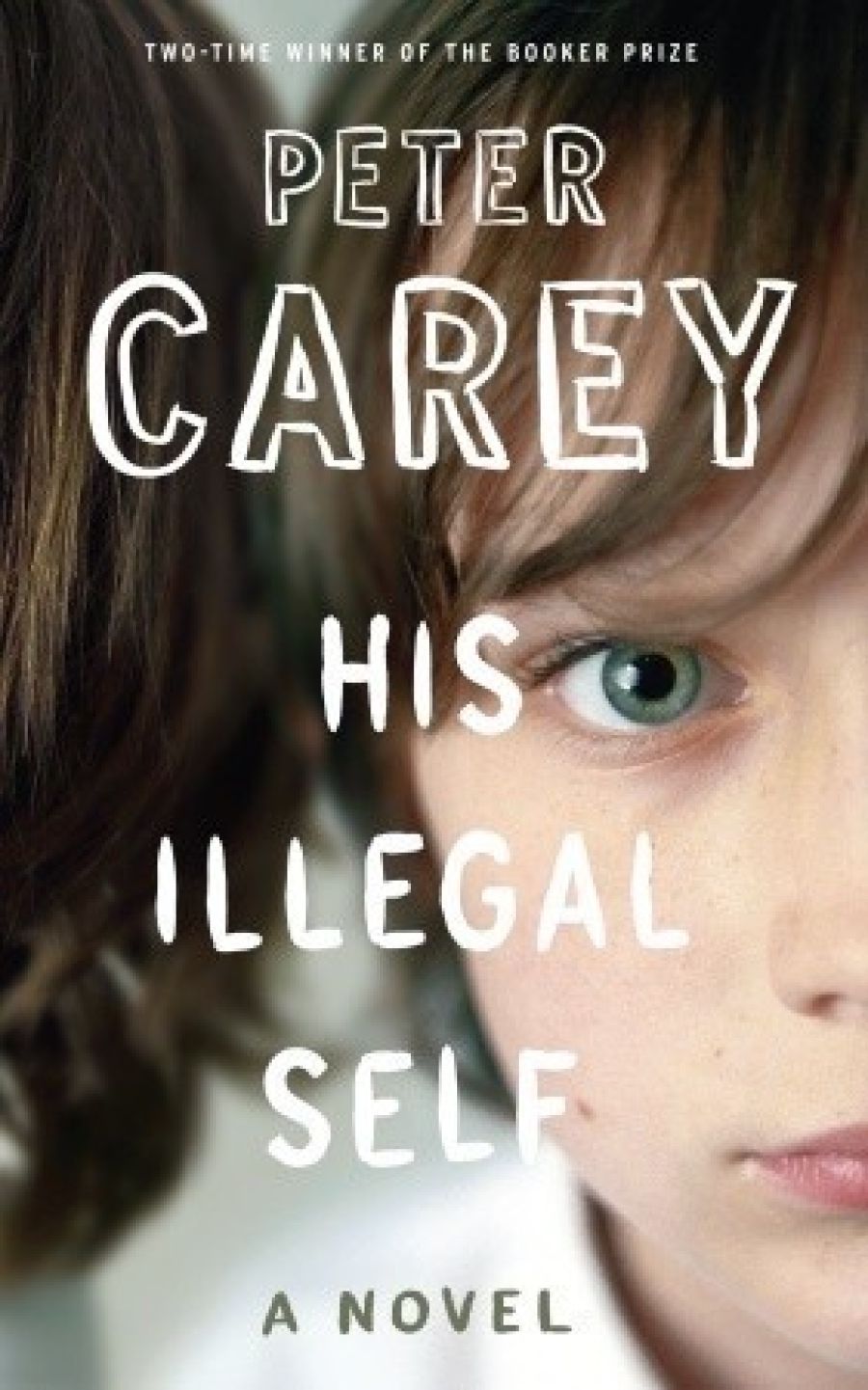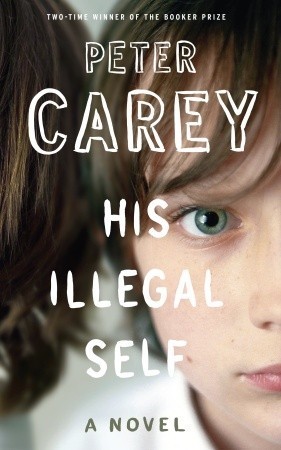
- Free Article: No
- Custom Article Title: Marking time
- Review Article: Yes
- Article Title: Marking time
- Online Only: No
- Custom Highlight Text:
It is hard to become excited about Peter Carey’s new novel, and that is a hard notion to entertain. We are used to being tested, and vastly entertained, by Carey. For a quarter of a century he has written distinctive and highly original fiction, including two or three books (notably True History of the Kelly Gang [2000] for this writer) that triumphantly fulfilled the novel’s enduring claim on our attention. This new work – though comparably imaginative in places – seems to mark not so much a falling-off as a kind of marking time.
- Book 1 Title: His Illegal Self
- Book 1 Biblio: Knopf, $45 hb, 272 pp
- Book 1 Cover Small (400 x 600):

- Book 1 Cover (800 x 1200):

His Illegal Self opens on fresh turf (the Upper East Side), before moving, a little jerkily, into more familiar backwaters. The year is 1972, just before the Watergate burglary and Richard Nixon’s re-election. Most of the student radicals who had galvanised American politics and employed revolutionary tactics in the 1960s are on the run from the FBI. One such is Susan Selkirk, Harvard-educated, daughter of a wealthy New York family, who robbed a bank to advance the protest against the Vietnam War. It is many years since she has seen her six-year-old son, Che (softened to Jay by his guardian). Through an academic fellow-traveller, Susan orders the gormless, socialistic Anna Xenos (known as Dial, short for Dialectic) to remove the boy from his wealthy grandmother, the admirably sketched Phoebe, whom we miss after the abduction is effected. Things go wrong, as they often do in Carey’s cosmos; Susan blows herself up in her bomb factory before the boy is transferred. In a desperate moment, Dial, who looked after Che when he was a baby and whom he longingly identifies as his mother in a rather confusing opening, declines to return him to Park Avenue and its comforts. First she removes him to Seattle (where he is shaved and dyed), then to Sydney, later, ominously, to Queensland.
Why she does so is never explained. The improbability of her wilfulness and of the journey itself niggles at the reader. Dial – who once slept with Che’s father, another legendary radical renegade – has just been offered an associate professorship at Vassar, and she is quite ambivalent about the boy. Implausibility has always been a feature of Carey’s novels, many of which have a fantastical quality, but this time the plunges and reversals are unconvincing.
It is a bold author who revisits territory mapped by Philip Roth. It is only a decade since Roth’s Pulitzer Prize-winning American Pastoral examined in absorbing detail the human implications and absurdities of a similarly stupid, adolescent, revolutionary bombing in the 1960s. Merry Levov’s calamitous act, and its profound moral consequences for her father, one of Roth’s greatest creations, are drawn with a kind of nineteenth-century power and exactitude. But then, Roth has a peerless ability to evoke a character’s moral, sexual, emotional, filial, professional, religious, domestic history. There are no short cuts, either; hence the hypnotic sprawl of Roth’s later novels. Too often Peter Carey relies in this novel on expressionistic devices. Often they feel slapdash, the gestural heights unearned. The phrasing becomes increasingly extreme, and not always telling.
Information dribbles out about Dial’s past and her own quandaries. Halfway through the novel we get to know the boy’s mother, culminating in a belated account of Susan’s greatest affront, baby in tow, which led to Che’s removal. But the psychology is sketchy, and this relatively short book begins to drag, especially when Dial and Che reach Queensland. The reader senses what is coming: a feral nirvana with dope, papaya, lantana, naked hippies with jagged teeth, and a very symbolic kitten. One cauliflower-mulching scene goes on forever.
Most surprising is the flatness of Carey’s prose. Two examples: ‘He jumped to the soft ground. He hurt his foot. He dropped the cat. He ripped at his shirt’; and (this ends a chapter) ‘The kitten was asleep, curled up like a dead caterpillar on the cushions. A bat entered through the front door, circled once, and disappeared. The boy wondered when they would be able to leave.’ As Samuel Butler remarked, ‘A style that is too terse is as fatiguing as one that is too diffuse.’
Some of the exchanges between Che and Dial are sharp, and she has a funny, disparaging passage about Australians, but this drop of acid is too sparse. The interview scene at Vassar, and the sad Chaucerian who connects Susan and Dial, are choice. Best of all is the sodden grandmother, who gets all the good lines: ‘You want me to call him Che in Bloomingdales’; and ‘When you get to my age everyone has worked for you’.
There is a powerful scene when Dial, desperate now for their mutual ordeal to end, rings America and speaks to Che’s contemptuous grandmother. This is followed by a new accord between the boy and his abductor. ‘She loved him, loved his smooth brown skin, the leafy smell of his tangled hair, most of all the eyes which were once more open, limpid, filled with trust. He loved her too.’ With this the boy utters, from nowhere, a prayer: a rather American moment.
Intriguingly, Che’s future life is hinted at. For much of the novel he is a pitiable dupe. Then he realises that he has been stolen and abused by feckless individuals. He takes off into the wilderness on his own. Relations on his return are never quite the same: Dial is rightly wary of him, for he has ‘gone beyond what he was brave enough to do and changed himself because of it’. There is a reference to ‘that littered path which would be his own comic and occasionally disastrous life’.
By now we want Che to transcend these desperadoes and reveal himself glowingly in adulthood. Perhaps, in a Rothian extension, he will.


Comments powered by CComment